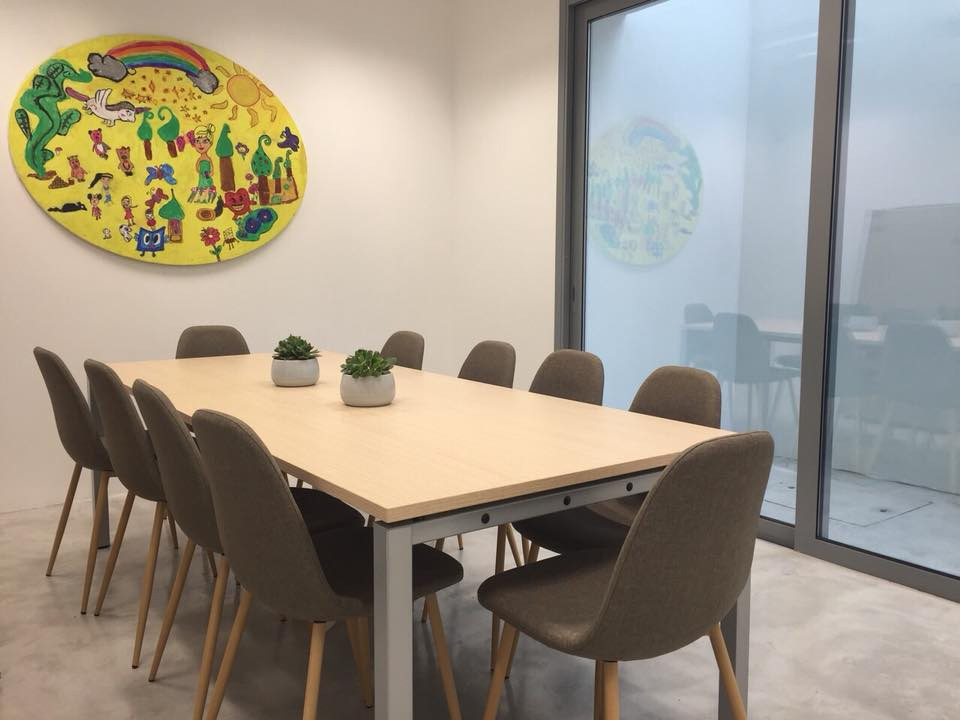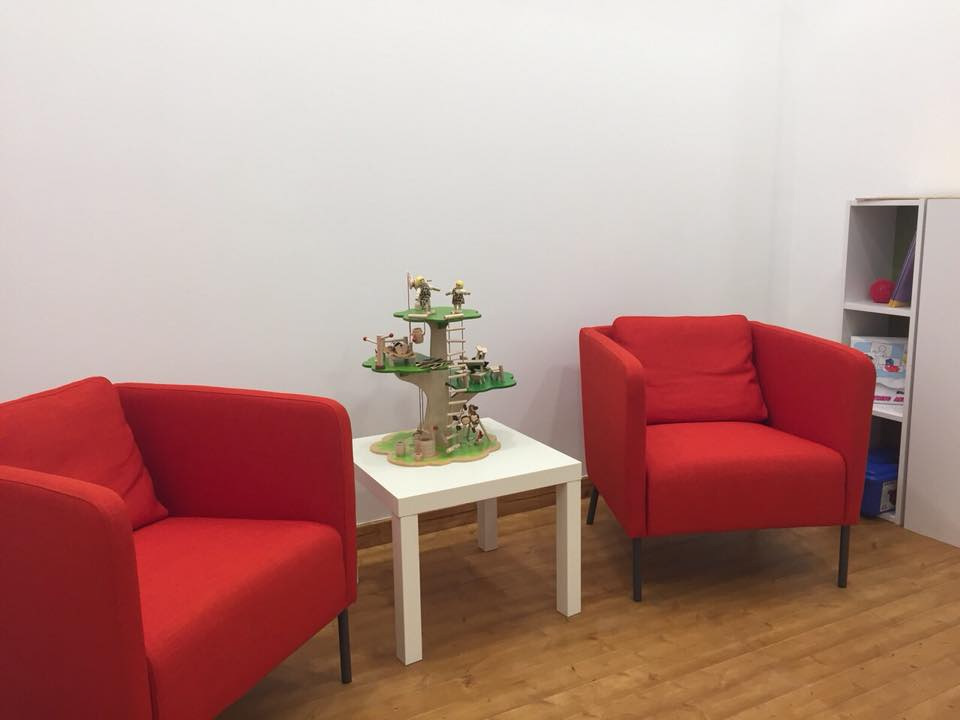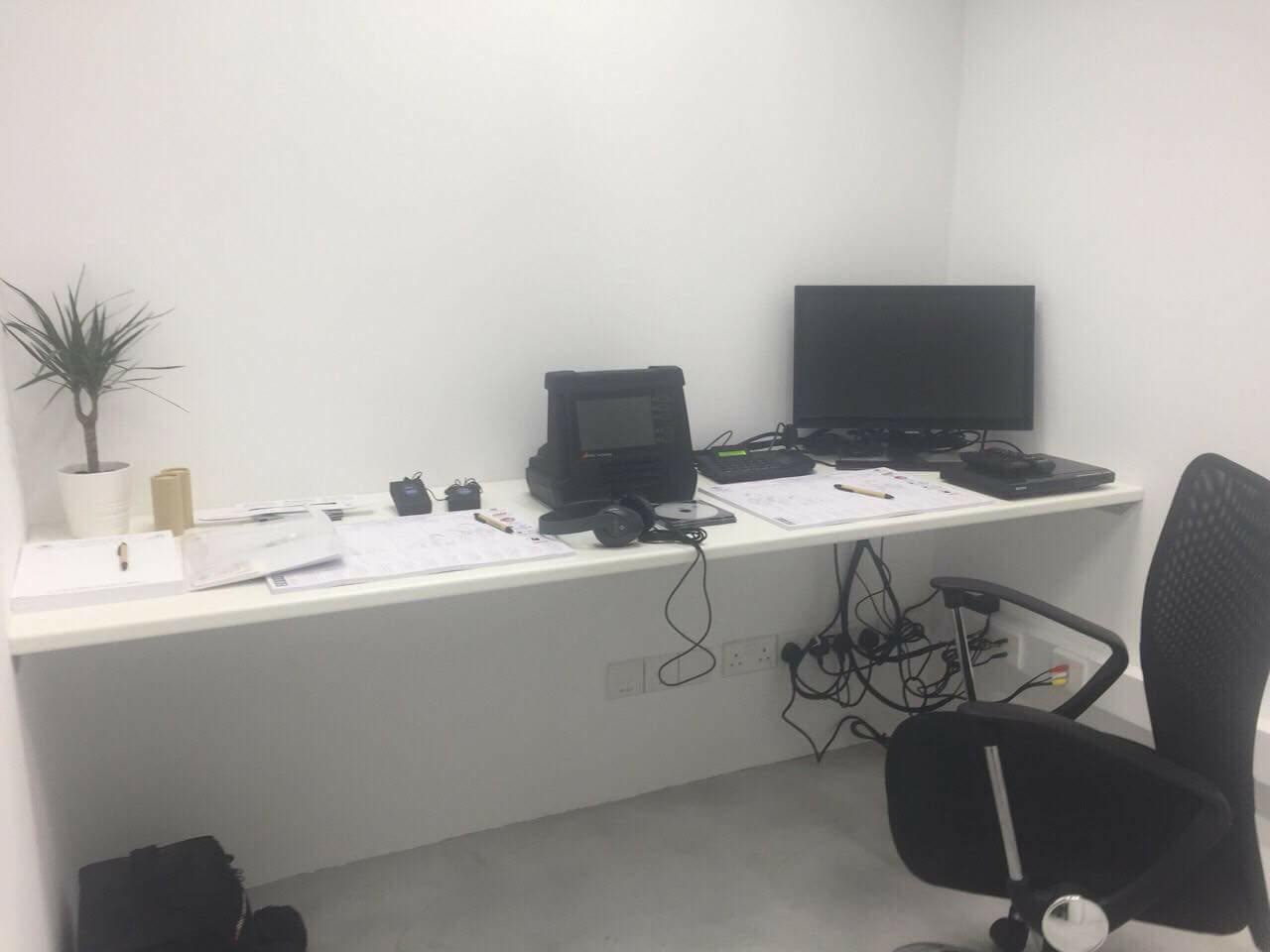The Children’s House
Description
The Children’s House (CH) is a child friendly, safe environment for sexually abused children, bringing together all relevant services under one roof, using a multidisciplinary and interagency approach. The establishment and operation of the CH in Cyprus is based on EU standards and the Icelandic model Barnahus (Children’s House). The basic principles of this program are the provision of justice in a child-friendly way, and ensuring the protection, safety and well-being of the child following the best interest of the child. The services provided involve forensic interviews, medical examinations, psychological evaluation and therapy, family therapy and social support.
The Children’s House uses a multidisciplinary and interagency model responding to child victims and witnesses of sexual abuse in the Republic of Cyprus. This is an innovative project for Cyprus since it’s the first time that a humanitarian organization and different governmental<br />
services work under the same roof.<br />
The objective is to offer a coordinated and effective response to cases of children victims of sexual abuse and to prevent retraumatisation during investigation and court proceedings. The Children’s House offers a one-stop-shop approach, embracing cooperation between relevant<br />
authorities and agencies such as police, social services, medical and mental health services in one child-friendly structure.<br />
Among the challenges faced during the setting up of the program were the allocation of specific governmental officers to the children’s house and building up specialization in this field for all professionals involved. The first was overcome due to the existing political will and determination of all parties to facilitate the proper implementation of the program which resulted in the allocation of officers coming to the CH for the handling of the cases from SWS, Cyprus Police, Ministry of Health and Ministry of Education. The second was overcome by the<br />
continuous training offered to all professionals involved either through EU projects run by HFC or by initiatives covered through the funding from partner Agencies. The distinction and separation of the roles and responsibilities of each partner in the program was initially a challenge which was overcome through the preparation of a detailed protocol<br />
of internal procedures for the operation of the CH, as well as through the signing of bilateral protocols between HFC and involved ministries.<br />
Another challenge is that until today, in criminal cases, during the judicial proceedings the child is brought to court for the cross examination procedure. This procedure can be very stressful and traumatic for the child. This is why, recently, following the approval of the Supreme Court, a teleconferencing system was installed in the court room in Nicosia and was connected with the Children’s House so that the child can testify during the trial while being at the children’s house, a child friendly space, already familiar to the child. Amendments of<br />
relevant laws are pending at them moment to be done in order for this procedure to be initiated.
The beneficiaries of the CH are all children up to 18 years old who are victims and / or witnesses of sexual abuse, exploitation or pornography, as well as their non-offending parents / guardians.
The CΗ is established within the framework of the National Strategy and the Action Plan for Combating Sexual Abuse and Exploitation of Children and Children's Pornography 2016-2019. The preparatory work for the design of the CH was done with the guidance of the General Director of Child Protection Services of Iceland, Mr. Bragi Guðbrandsson, and with the involvement of the above partners. In addition, representatives from the SWS, Cyprus Police and HFC attended study visits to children’s houses in other EU countries, receiving knowledge directly from the professionals involved. The CH is accommodated in a building which has been leased to the Ministry of Labor, Welfare and Social Insurance on a long term basis by the Greek Ladies Association, who also donated an amount that contributed to its renovation. For the operation of the CH, HFC recruited a coordinator, six social workers, 6 clinical psychologists and one administrator, while one clinical psychologist is placed in the CH from the Mental Health Services. In regards to the Police, which has an integral role in the operation of the CH, a special investigative team with forensic interviewers was set up and investigates all cases of sexual abuse against children at national level. Two medical examiners are appointed by the Ministry of Health to undertake the forensic examination of the cases. In the premises of the CH there is a medical room which is equipped for this purpose so that examinations may take place at the CH avoiding the transfer of the child to the public hospital. The HFC staff is located at the CH in Nicosia and in offices in Larnaca and Limassol in order to ensure that the evaluation and support services are more accessible and provided to the beneficiaries in their own district. The multi-disciplinary and interagency approach has a central role in the implementation of the program and the handling of the cases. Due to this, representatives from all partners attend a weekly meeting where all referrals are discussed and all necessary actions to take place within the services of the CH are coordinated. To achieve the provision of high quality services, HFC has established cooperation with external associates such as paediatricians, child surgeons, gynaecologists, interpreters and supervisors (psychologists and social worker). The SWS is the body responsible for the monitoring and the evaluation of the program. In addition to this, each service involved is responsible to monitor and evaluate the performance of the professionals that fall under their service, while HFC’s management is responsible to do this for the professionals employed by HFC.
An evaluation procedure for the services will soon start being implemented, through the administration of feedback questionnaires to the beneficiaries of the services. The Project constitutes a major act provided for in the above National Strategy and Action Plan. The implementation of the Strategy is by Law monitored by a Council of experts named “Foni”.
a) faster and more effective exchange of information between all involved parties (CH staff, Cyprus Police, Social Welfare Services, Mental Health Services, Medical Services, Ministry of Education), which enables the holistic treatment of the victim, and more coordinated actions avoiding the overlapping of services,
b) the child has throughout all the procedures a contact person (Social Worker) assigned to him/her, with whom he/she builds the necessary rapport and can refer to for support during all stages,
c) the child visits only one structure which is child friendly to receive services and is not anymore drawn into parallel enquiries and assessments, moving between different agencies and disciplines, potentially causing repetitious and intimidating experiences, which can result in retraumatisation of the child and hinder the child’s disclosure and participation,
d) the forensic interview is conducted at the CH’s premises by specialized police officers who are trained on how to conduct such interview with children,
e) there is a centralized system for the recording of cases and statistical data on a national level which enables the collection of more accurate
data in relation to this phenomenon in Cyprus, and in turn, will be beneficial for the design of more effective policies to address the prevention needs and the implementation of relevant actions,
f) the services of the CH are addressed to all children regardless their cultural background, religion or sexual orientation.
The implementation of an interagency and multi-disciplinary approach through this program seems to have a positive spill-over effect given that the government is considering applying this model in other fields as well, such as the handing of cases of violence against women.
implementation of a pilot project, a three-year project (May 2013 - April 2016) entitled “Strengthening national policies against sexual violence against children”. This project was cofinanced by the Leventis Foundation and co-ordinated by the PACE (Council of Europe
Parliamentary Assembly), and aimed among others to enable Cyprus to ratify and implement the Lanzarote Convention, as well as to produce a study about the extent of the phenomenon of sexual abuse against children in Cyprus. The partners of this project were the University of
Cyprus, the Office of the Commissioner for Children’s Rights, the Municipality of Nicosia, the Cyprus National Commission for UNESCO, HFC and the Advisory Committee for the Prevention and Handling of Violence in the Family. The National Strategy and the Acton Plan for Combating the Sexual Abuse and Exploitation of Children and Children's Pornography 2016-2019 (Decision of the Council of Ministers no.
80.430, dated 21/03/2016) was another enabling factor since the establishment of the CH is provided under the above strategy which officially set the commitment of the government to realize this program. This also led to the allocation of the necessary funds to operate the
program that were channeled through the Social Welfare Services of the Ministry of Labour, Welfare and Social Insurance.
The fact that all relevant governmental services had to cooperate under the same roof was initially one of the constraints since this model was never applied in Cyprus before. However, due to the political and governmental will to establish the children’s house in Cyprus, this
constraint was overcome following the joint efforts of all stakeholders involved to achieve this.
The selection of “Hope For Children” CRC Policy Center as the organization to undertake the operation of the program was also one of the enabling conditions that helped this initiative succeed given that the specific organization was already closely cooperating with all the
relevant governmental services and was also already working in the field of sexual abuse against children.
Furthermore, continuous training of professionals is an important tool for the day-to-day management of cases and thus the success of this program.
The building of expertise among the professionals through the continuous training and capacity building is contributing to the sustainability of the program and its expansion. As the Children’s House in Cyprus is unique in the Mediterranean region, with the aim of
further exchanging and promoting good practices, Cyprus Police have chosen to dedicate their 2018 international conference (June 13-14th) on the subject “Trends in Handling Child Sexual Abuse” , with an emphasis on multidisciplinary approaches, namely the Barnahus model.
The Children’s House has contributed in a great extent to the increase of the quality of services provided to children victims of sexual abuse and their families and provided a common operational and organisational framework that promotes practices which prevent retraumatisation, while securing forensic evidence for Court, and complies with children’s<br />
rights to protection, assistance and access to child-friendly justice.<br />
It’s an innovative structure for Cyprus as it offers a one-stop-shop approach, embracing cooperation between relevant authorities and agencies in one child-friendly environment. The Children’s House also plays an important role in enhancing awareness and knowledge about<br />
sexual abuse against children among key stakeholders and the public.<br />
The Program constitutes a prime example of joint and collaborative effort of stakeholders from the governmental, the private and the non-governmental sector acting in partnership, with assistance and expertise from partners at the European and International level.
PROMISE 2: www.childrenatrisk.eu/promise/
The European Barnahus Project: https://childcircle.eu/2017/09/12/launching-the-europeanbarnahus-
movement/
The European Barnahus Standards: http://www.childrenatrisk.eu/promise/standards/
National Strategy Implementation Council FONI: www.foni.org.cy
SDGS & Targets
Deliverables & Timeline
Resources mobilized
Partnership Progress
Feedback
Action Network


Timeline
Entity
Region
- Europe
Photos



Website/More information
Countries

Contact Information
Andria Neocleous, Director of Humanitarian Division
